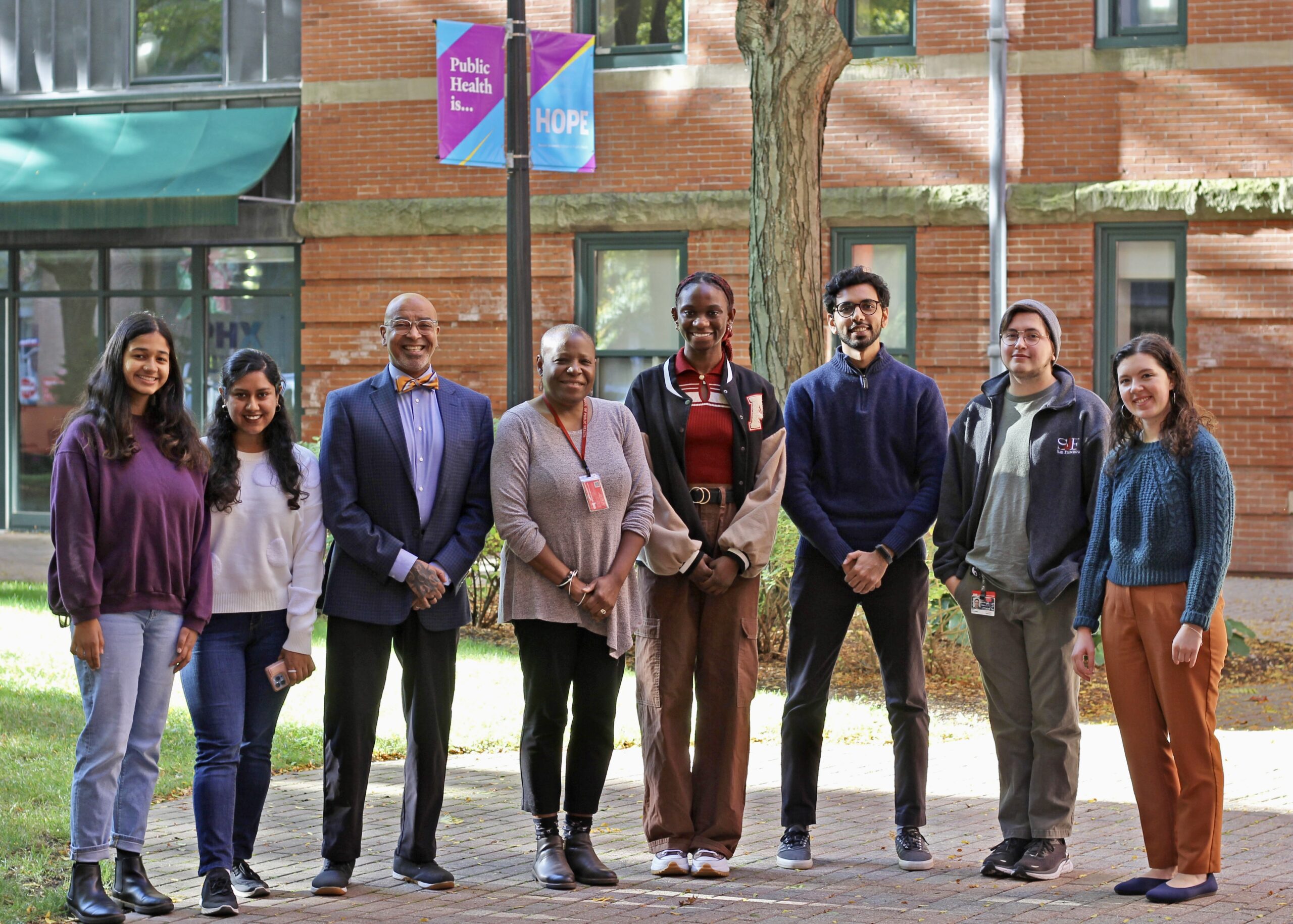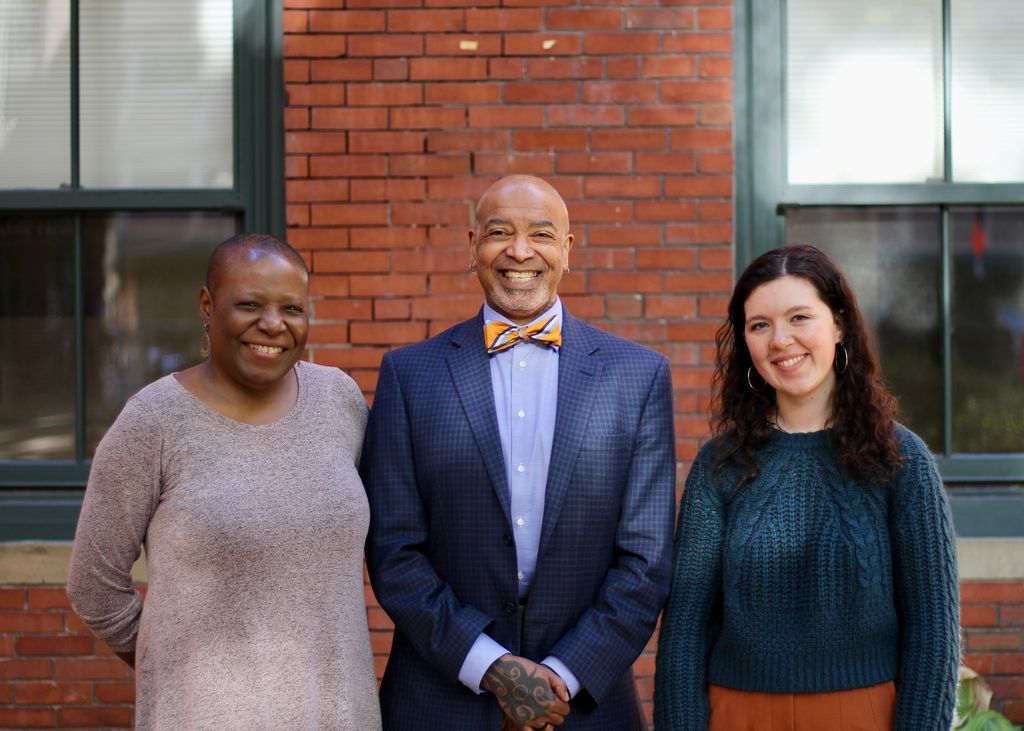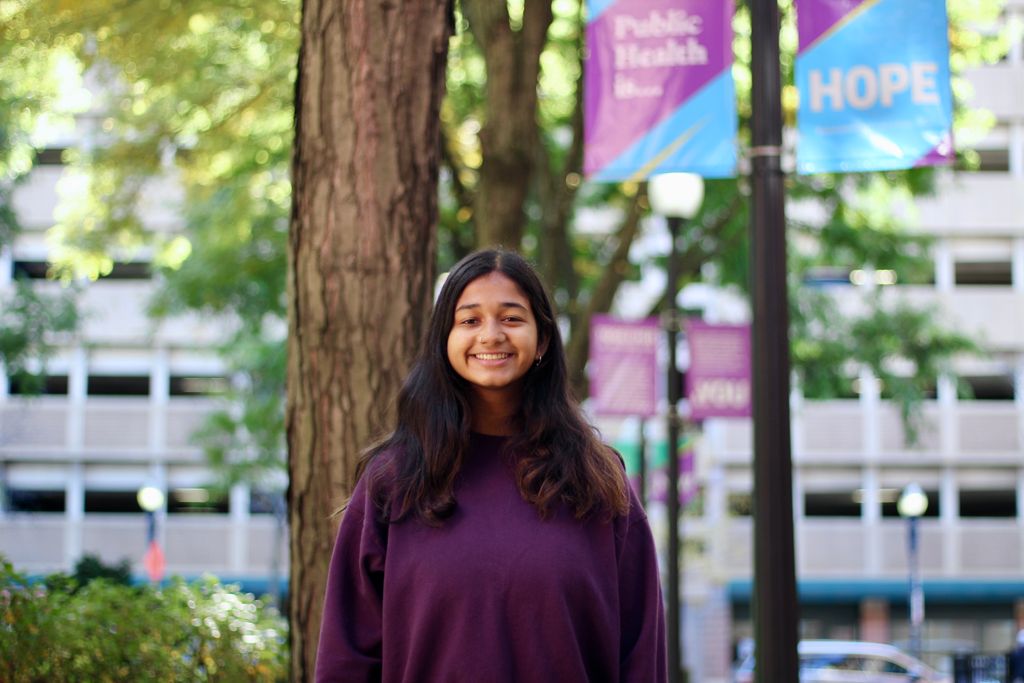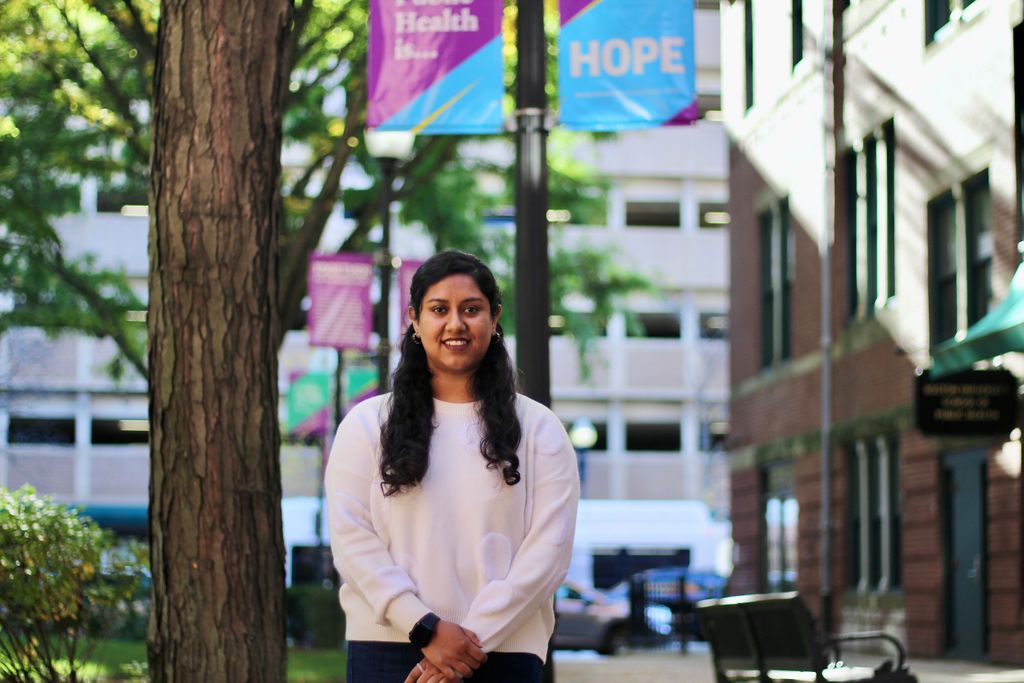SPH Assembles First Cohort of JEDI Fellows.

SPH Assembles First Cohort of JEDI Fellows
After a successful pilot, the School of Public Health officially launched the Justice, Equity, Diversity, and Inclusion (JEDI) Fellowship, welcoming nine students to its inaugural cohort.
2023-2024 JEDI Fellows and Fellowship Program Staff (From left: Kavya Ganugapati, Tarim Fahim, Craig Andrade, Yvette Cozier, Ayomide Adetayo, Haider Rauf, Roy Sistovaris, and Jessica Goode. Not pictured: Darya Iranmanesh, Alina Jatoi, Namrata Naskar, and Janaki Shah)
After a successful summer pilot, the School of Public Health officially launched the Justice, Equity, Diversity, and Inclusion (JEDI) Fellowship, welcoming nine students to its inaugural cohort.
Assembled to advance JEDI initiatives at SPH, the diverse team of students will act as paid consultants over the year-long fellowship, providing advice and support on the design and implementation of best practices across the School. By collaborating with faculty and staff, as well as their peers, JEDI Fellows will work to ensure curricula, course materials, trainings, and research activities are inclusive, accessible, identity-affirming, and representative of the broad world in which public health functions.
Over the summer, students passionate about enacting positive change at SPH were encouraged to apply to the fellowship, and faculty and staff were encouraged to submit proposals for projects to engage JEDI Fellows. Once selected, each fellow was matched to a particular department, office, or center to assist with their project.
The 2023-2024 cohort includes Kavya Ganugapati at the School Health Institute for Education and Leadership Development (SHIELD), Roy Sistovaris at the Biostatistics and Epidemiology Data Analytics Center (BEDAC), Namrata Naskar and Darya Iranmanesh in the Department of Epidemiology, Tarim Fahim and Alina Jatoi in the Department of Global Health, Ayomide Adetayo and Janaki Shah in the Department of Environmental Health, and Haider Rauf in the Office of Education.

“I am so excited by the power of the fellows’ energy!” says Craig Andrade, associate dean for practice, who leads the fellowship program with the support of Yvette Cozier, associate dean for diversity, equity, inclusion, and justice, and Jessica Goode, project coordinator in the Dean’s Office. “There is no doubt that our JEDI Fellowship, the only such program in the country, will be a catalyst for transforming our school’s JEDI culture and practice.”
The concept of the fellowship originated from a proposal put forth in spring 2021 by a small group of student leaders representing the Queer Alliance (QA), Students of Color for Public Health (SCPH) and the International Students Organization (ISO), says Andrade.
JEDI Fellows work 5-10 hours per week and are compensated $20 per hour. Centering the voices of historically marginalized students, and appropriately compensating them for their work, are central tenets of the program. A successful pilot of the idea, called the Equity Leadership Collaborative, concluded this past summer, making way for the debut of the JEDI Fellowship.
“The JEDI Fellowship offers students rich opportunities for professional development, drawing on both School and University resources to offer trainings in areas such as antibias strategies and practice, conflict resolution, teaching pedagogy, queer history, public health advocacy, and community engagement,” says Andrade.

Kavya Ganugapati, an MPH student studying healthcare management, participated in the Equity Leadership Collaborative pilot this summer before becoming a JEDI Fellow. She says she looks forward to partnering with SHIELD to integrate JEDI principles into its school nurse training programs after doing similar work during her recent practicum with the Nursing and Patient Care Services Department at Dana Farber. Ganugapati’s first task is to spearhead SHIELD’s monthly book club.
“The internal staff at SHIELD asked, ‘How can we preach DEI, if we ourselves are not having these conversations?’” says Ganugapati. “So, this past week, I picked the topic of indigenous health [for the book club] because indigenous people are often left out of public health conversations.”

Tarim Fahim, an MPH student studying epidemiology and biostatistics, also works to facilitate open conversations as part of her JEDI fellowship. For her first task on behalf of the Department of Global Health, she built a glossary of JEDI terms and concepts commonly used in the field, such as “decolonization” and “white supremacy.” Fahim, who is an international student and serves as the co-director for diversity and advocacy in the Student Senate in addition to her fellowship, recognizes these are sensitive subjects. She hopes that by providing common, neutral language, the SPH community can nurture difficult, but important conversations about the future of global health. The department recently launched a website dedicated to fairer partnerships in global health, showcasing Fahim’s glossary and additional resources.
“It is an amazing initiative,” says Fahim, whose next task is to interview faculty about the strategies they think will help incorporate JEDI principals in the classroom. “Being a person of color, a woman of color, it resounds with me very personally. I am really happy to learn through this fellowship and grateful to put my ideologies into actions.”
